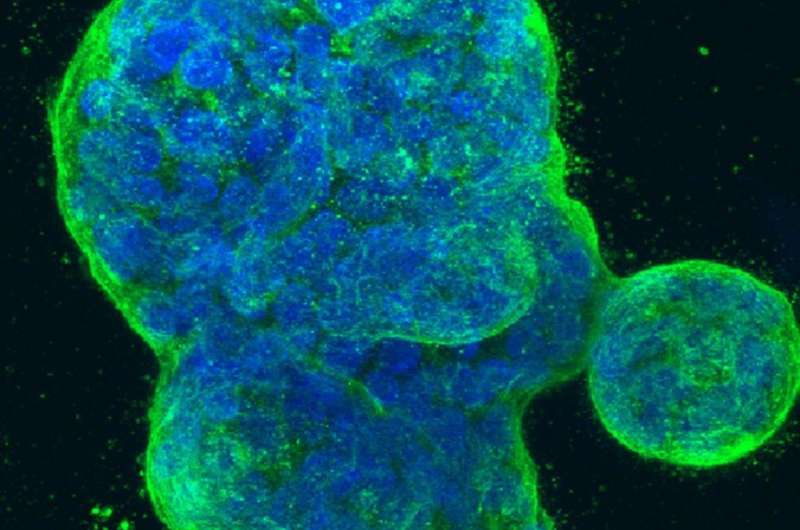This article has been reviewed according to Science X's editorial process and policies. Editors have highlighted the following attributes while ensuring the content's credibility:
fact-checked
reputable news agency
proofread
'New era and treatment of breast cancer': AI is helping detect breast cancer earlier

New AI-powered mammograms are helping doctors detect breast cancer earlier in patients, helping many avoid aggressive therapies and leading to better outcomes at Baptist Health South Florida's cancer institute in Boca Raton.
The AI technology, first implemented in 2020 during the COVID-19 pandemic, has increased the cancer detection rate by 23% at the Lynn Women's Health & Wellness Institute, according to Dr. Kathy Schilling, the institute's medical director. The institute is located on the campus of Boca Raton Regional Hospital, part of Baptist Health South Florida.
Breast cancer is the most common cancer in women in the U.S., excluding skin cancers, and is the second leading cause of cancer death in women, though deaths have steadily declined due to earlier detection through screenings and better treatment options. The earlier breast cancer is detected, the easier it is to treat.
At the institute, AI has helped staff identify cancer as small as 3-6 millimeters in size. Catching the cancer early has led to patients needing less aggressive therapies, fewer mastectomies, smaller lumpectomies and fewer radiation and chemotherapy, said Schilling.
How it works
For patients, their mammogram process doesn't change. But for the radiologists, who can often get fatigued while looking at hundreds of images during 10-hour shifts, the AI assistance is making it easier to detect possible signs of cancer that the human eye might miss.
"AI is different because it continues to learn and it sees things that are not identified by a human being, it sees adjacency and it sees things on the mammogram that our eyes and our brain can't even perceive," said Schilling.
The 3D mammography creates four images using hundreds of stills that are converted into thin 1-millimeter images per exam. The AI system acts like a second pair of eyes.
It scans the images and notifies radiologists of possible cancer spots, circling the area and giving it a number on a scale for the likelihood of cancer. The radiologist still needs to examine the image, and consider the patient's age and risk factors, to determine whether further evaluation is needed.
Is the AI system working?
Schilling said the institute reviewed 54,440 screenings it conducted pre-AI, from 2018 to 2020, and 48,742 screenings it conducted using AI from 2020 to 2022 to see how the system performed. The institute has nine breast cancer radiologists, with 22 years of experience, on average.
The results? The institute's cancer detection rate—a sign of the screening program's quality—increased by 23% using AI, she said.
"That's huge, I was so shocked," said Schilling. "If you had found 100 cancers before using AI, we found 123 after using AI, a significant increase in number of cancers and we found that we were able to do that without calling more patients back."
AI usage is expected to continue expanding in health care. For breast cancer, Schilling believes the technology will help doctors move away from standardized age-based cancer screening guidelines to more personalized breast cancer screenings based on a patient's individual risk factors.
"We have the opportunity to enter into a new era and treatment of breast cancer," she said.
2023 Miami Herald. Distributed by Tribune Content Agency, LLC.



















